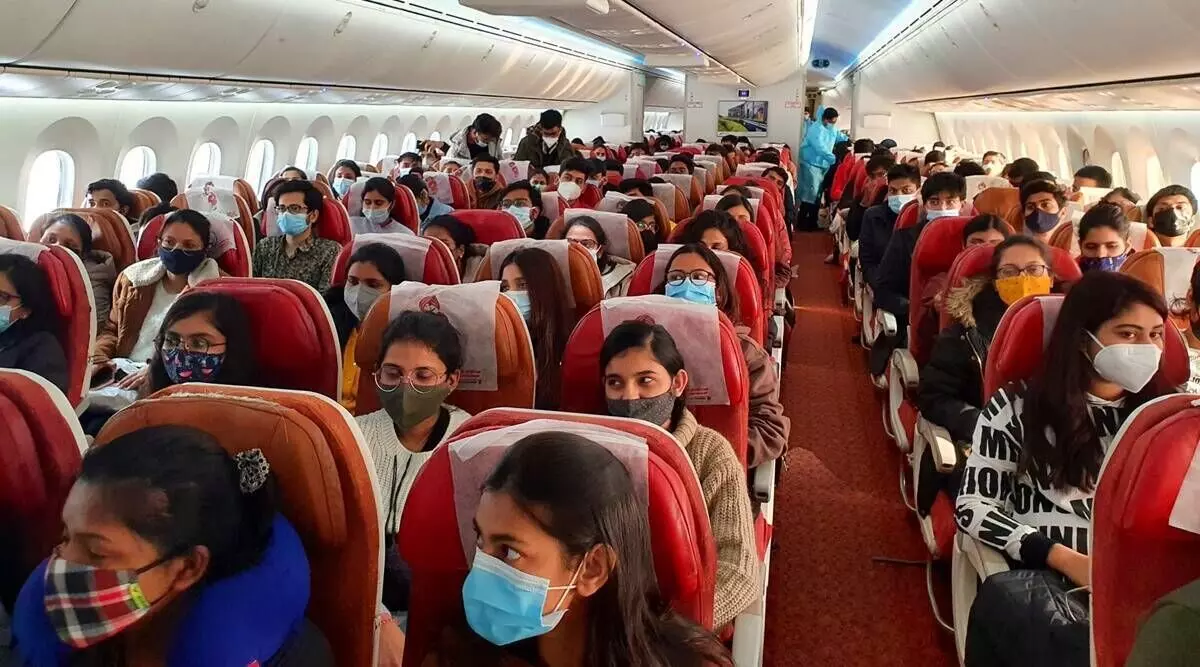
New NMC guidelines to allow medical students from Ukraine, China to sit for FMGE test
text_fieldsNew Delhi: The country's top medical education regulator has recommended that final-year medical students from China and Ukraine, who could not finish their practical training either due to the Covid 19 pandemic or war, should be allowed to sit for the screening test -Foreign Medical Graduate Exam (FMGE), which they have to clear to practice medicine in the country.
Those students who clear the exam are required to complete a two-year internship to qualify for permanent registration to practice medicine in the country.
As per the recommendation of the National Medical Commission (NMC), this will be a one-time exemption due to unforeseen circumstances.
Under the current norm, in order to write the FMGE exam in India, student studying in foreign medical institutes must finish their training and year-long internship at the university they are enrolled in. In addition to this, to get permanent registration, they also have to then do a one-year long internship in India as well.
"The relaxation will be applicable only for a year, so students should refrain from taking admission to courses in these countries this year even though China is now allowing very few students to return. Some of the students from China were given an internship completion certificate online, how can that be accepted. The two-year internship will help in plugging the gaps in clinical training," said a senior official.
As FMGE is known for its low pass percentage, this exemption is unlikely to help many students. According to figures from the National Board of Examinations, which conduct the screening test, only 16.5% of students who took the exam in 2020 passed.
It was on the mandate of the Supreme Court that the proposal was submitted by the undergraduate medical board of the National Medical Commission (NMC).The proposal allows first and second year medical students, who have joined their college after November 2021, to re-appear for NEET and gain admission in Indian colleges. Unlike third and fourth year students these students will not be able to transfer to universities in other European countries.
The new guidelines for foreign medical graduates, which went into effect in November 2021, require students to finish their entire training and internship at the same university.
With the counselling for NEET 2021 delayed because of the pandemic, some of the first year students who attended NEET opted not to sit for the counseling.
Although it is not explicitly mentioned in the proposal, third- and fourth-year medical students will be admitted to colleges that offer courses that meet Indian standards in other European countries, such as Russia, Kazakhstan, or Kyrgyzstan, the Indian Express reported
The new norms have affected a lot of students. The education of about 65,000 students in India - mainly from China and Ukraine but also from the Philippines has been halted due to these. Close to 18,000 medical students have returned from Ukraine since the war began in February. Another official said, "There is no way we can accommodate so many medical students in India. We have a total of 90,000 MBBS seats and there are so many people higher up in the merit list who might not have gotten admission, so how can we give the seats to them?"
No relief for students from Philippines
Although concessions have been granted to final-year medical students from China and Ukraine, around 10,000 students studying in the Philippines are still in shock. Two batches of students enrolled in courses across the country will not be eligible for the FMGE screening test after the new Foreign Medical Graduate Guidelines come into force in November 2021.
The medical course in the Philippines has a course schedule of four years, preceded by a two-year BS course in basic biology. The new norms state that the course should be equivalent to the medical courses in India completed in 5.5 years or 54 months.
The NMC has also said that the BS biology course cannot be considered a part of the medical training. Therefore, students studying in Philippines are at a standstill concerning their courses.























